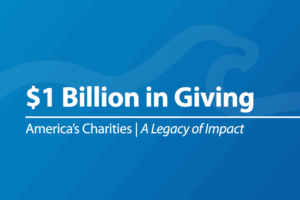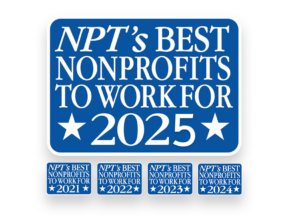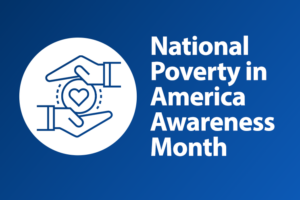Sarah Ford | July 29, 2015
Saving Lives by Answering the Call/Text/E-mail/Chat for Help

The first text message Brianna sent to a Boys Town National Hotline® Crisis Counselor said she had cut herself as part of a suicide attempt.
The next time Brianna texted the Hotline, she thanked the counselor and Boys Town for saving her life. It was last April when the 16-year-old sent a text message from her home on the East Coast to the Hotline. Brianna said she’d been having trouble in school and at home, and that she’d been cutting herself as a way to cope with depression. The teen hadn’t been able to talk to anyone about how she was feeling, and now she had cut herself again, this time intending to end her life.
The trained Crisis Counselor who received the text via the Hotline’s computer system responded by trying to call Brianna at the number the teen had provided. But no one answered. The counselor then quickly called the local police, who determined where Brianna lived and went to her home. Once there, they found the teen, bleeding from a deep cut to her arm but responsive. A rescue squad took her to the hospital, where she spent several days recovering. After being discharged, she began receiving counseling through a local program.
Two weeks later, the Hotline received another text from Brianna:
“I just wanted to thank you for saving my life. I am doing much better.”
Keep the Lines of Hope Open for Troubled Youth
 Helping troubled youth contact Boys Town in ways that are comfortable for them and offering effective assistance in serious, even life-threatening, situations is the overall goal of the Boys Town National Hotline. Accredited by the American Association of Suicidology and Contact USA, and a member of Child Helpline International and the North American Alliance of Child Helplines, the Boys Town National Hotline and its extended services have been answering the call for help for more than 25 years, providing immediate, professional and compassionate assistance to children and parents.
Helping troubled youth contact Boys Town in ways that are comfortable for them and offering effective assistance in serious, even life-threatening, situations is the overall goal of the Boys Town National Hotline. Accredited by the American Association of Suicidology and Contact USA, and a member of Child Helpline International and the North American Alliance of Child Helplines, the Boys Town National Hotline and its extended services have been answering the call for help for more than 25 years, providing immediate, professional and compassionate assistance to children and parents.
One of the most critical needs the Hotline meets involves teens who have decided to hurt themselves or take their own lives, but who at the last minute reach out to Boys Towns’ Crisis Counselors for help. Thanks to a variety of support services offered by Boys Town, including The Boys Town National Hotline (1-800-448-3000), YourLifeYourVoice.org website created by the hotline, and the Hotline’s newest innovation, a Texting Service, Boys Town prevented more than 500 suicides in 2014.
Unfortunately, even with the many young lives saved and changed by Boys Town, there are still far too many boys and girls who could benefit from their help but don’t know how to find it. Generally, the Boys Town National Hotline receives little or no formal support from local, state or federal government to cover its $2 million annual budget. So the only way they can continue to meet this critical need is through generous support of donors – both individuals and corporations. With additional funding and support, Boys Town can increase awareness through marketing and promotions, and reach out to those youth (and their families) who need the unique assistance Boys Town’s Hotline provides.

If your company would like to support or feature Boys Town through an employee giving program, click here to learn about our corporate giving solutions and request a demo.
Our thanks to Boys Town for sharing the work they’re doing. To learn more about Boys Town and other programs they provide, visit their website at www.boystown.org.
Get Resources and Insights Straight To Your Inbox
Explore More Articles
$1 Billion in Giving: America’s Charities Reaches a Historic Milestone
A testament to the impact of mobilizing the power of giving. We have some extraordinary news to share. In 2025, America’s Charities crossed a threshold that few organizations…
America’s Charities Named ‘Best Nonprofit To Work For’ For Fifth Consecutive Year
Washington, D.C. – April 1, 2025 – America’s Charities, the nonprofit that mobilizes the power of giving as a leading provider of volunteering, workplace giving,…
Get Resources and Insights Straight To Your Inbox
Receive our monthly/bi-monthly newsletter filled with information about causes, nonprofit impact, and topics important for corporate social responsibility and employee engagement professionals, including disaster response, workplace giving, matching gifts, employee assistance funds, volunteering, scholarship award program management, grantmaking, and other philanthropic initiatives.




